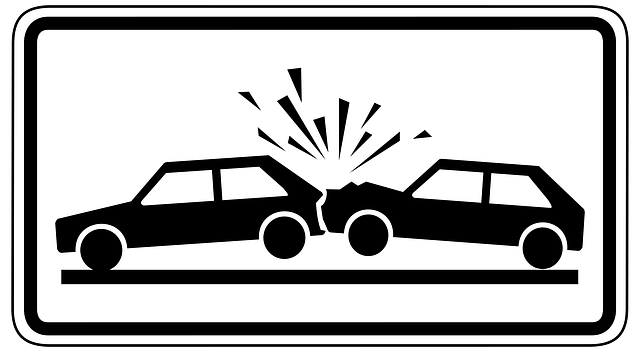Regular maintenance of garbage trucks is critical for preventing garbage truck accidents and ensuring safety on the road. Well-maintained trucks are less likely to experience technical failures, reducing the risk of catastrophic collisions. Neglecting maintenance can lead to severe injuries, property damage claims, legal issues, and partnership disagreements. Regular checks extend the vehicle's lifespan, avoid costly accidents, and protect against legal repercussions, making it a vital investment for waste management companies. Engaging qualified mechanics is essential for accident prevention and protecting drivers, colleagues, and the public from potential hazards.
Poor maintenance is a silent yet significant contributor to garbage truck accidents, making it a critical aspect of fleet management. Regular, proactive maintenance ensures these large vehicles operate safely on the road, preventing potential hazards and protecting both drivers and the public. This article delves into the role of maintenance in enhancing garbage truck safety, exploring common issues that arise from neglect, and offering practical strategies to prevent accidents related to mechanical failures, ultimately fostering a safer environment for everyone involved.
- The Role of Maintenance in Garbage Truck Safety
- – Discuss the importance of regular maintenance for garbage trucks
- – Highlight common wear and tear issues that can arise without proper upkeep
The Role of Maintenance in Garbage Truck Safety

The condition of a garbage truck is a critical factor in ensuring the safety of both the driver and others on the road. Regular maintenance plays a pivotal role in preventing accidents caused by malfunctioning vehicles. Well-maintained trucks are less likely to experience technical failures, such as brake system issues or engine malfunctions, which can lead to catastrophic collisions.
By adhering to strict maintenance schedules, garage owners can identify potential hazards early on. This proactive approach not only reduces the risk of garbage truck accidents but also minimizes the likelihood of severe car accident injuries. An auto accident lawyer would agree that proper vehicle upkeep is essential in protecting the rights of victims and ensuring fair compensation. Moreover, efficient maintenance routines can help avoid costly employment disputes related to safety concerns among truck operators.
– Discuss the importance of regular maintenance for garbage trucks

Regular maintenance is paramount for garbage trucks to ensure they operate safely and efficiently on the road. These vehicles, often weighing tens of thousands of pounds, navigate through tight corners and handle demanding routes, making them prone to mechanical failures if not well-maintained. Regular checks can identify potential issues early, such as worn-out brakes, damaged tires, or faulty lighting systems—all of which contribute to improved safety and reduced risk of a garbage truck accident.
Neglecting maintenance can lead to catastrophic consequences, including property damage claims resulting from accidents caused by malfunctioning equipment. Moreover, partnership disagreements due to disputes over who is responsible for maintenance costs can arise if proper care isn’t prioritized. Ultimately, regular maintenance not only prevents these issues but also helps extend the lifespan of the vehicle, making it a crucial investment for any garbage truck operation to avoid costly car accident injuries and legal repercussions.
– Highlight common wear and tear issues that can arise without proper upkeep

Without proper maintenance, garbage trucks can develop various wear and tear issues that significantly impact safety and increase the risk of accidents. Some common problems include worn-out brakes, which may lead to prolonged stopping distances or even failure to stop entirely; broken or loose suspension components causing poor handling and increased driver fatigue due to constant adjustment; and faulty tires that can blow out unexpectedly, leading to loss of control. These issues are not just a nuisance; they pose serious risks to drivers, their colleagues, and the public, especially when considering the weight and hazardous materials these vehicles carry.
Moreover, neglected routine maintenance can escalate into more complex problems. For instance, fluid leaks that go unchecked can cause engine overheating or hydraulic system failures, rendering the truck immobile and potentially leading to accidents. Corroded parts can weaken structural integrity, increasing the likelihood of collapse or failure during operation. Regular upkeep, including checks on these critical systems, is essential not just for ensuring smooth operations but also for preventing devastating garbage truck accidents and facilitating client recovery in case of employment disputes involving such incidents. Engaging a qualified mechanic or maintenance team is, therefore, a crucial step towards safety and risk mitigation for any waste management company.
Poor maintenance is a significant contributing factor to garbage truck accidents, as it allows wear and tear issues to go unnoticed and unchecked. Regular, comprehensive maintenance checks are essential to ensuring these vehicles operate safely on the road. By addressing common problems like worn brakes, faulty steering mechanisms, and damaged tires, fleet managers can significantly reduce the risk of accidents and protect both drivers and other road users. Implementing rigorous maintenance protocols is a proactive step towards enhancing overall safety in the garbage collection industry.






